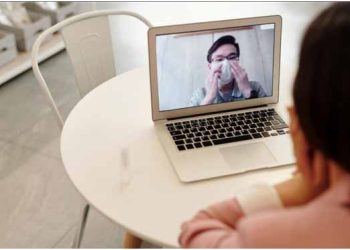The COVID-19 pandemic can feel overwhelming because of new information, long hours, and taking care of your loved ones and yourself. It is important to pause for a minute and collect your ideas, as global pandemics can be taxing. Staying calm can help. It is quite normal to feel stressed during these testing times. Emotions in reaction to uncertainty might include anxiety, fear, anger, and sadness. You also could feel helpless, frustrated, and, sometimes, out of control. Physical responses may include headache, muscle strain, fatigue, and insomnia.

Here are some ideas you can use to look after yourself:
Physical health:
- Fuel your body by eating a healthy, well-balanced diet and drinking lots of water.
- Sleep as much as you can.
- Exercise daily.
- Avoid dangerous or risky behaviors, like abusing drugs or alcohol, excessive gambling, or dismissing public health recommendations.
Mental health:
- Establish and maintain a routine at home.
- Utilize technology to keep social connections with your nearest and dearest. Think about a normal check-in schedule to give you something to anticipate.
- Focus your thoughts on the current and things to be thankful for today.
- Consume reliable news sources that report news, and prevent media that sensationalizes emotions.
- Lean in your personal beliefs and religion for support.
- Search for ways to help your community, such as blood donations, checking on older adults in your area, or donating money or supplies to local organizations.
- Acknowledge and appreciate what others do to assist you and your community.
Follow Your Advice:
- In the circumstances such as this, it’s common to feel sad, stressed, confused, angry, or scared. You should know that you’re not alone and should speak to somebody you trust, like a parent or a trusted adult, so that you may protect yourself and your wellbeing.
- Wash your hands frequently, always with water and soap for at least 20 minutes.
- Don’t share cups, food, or beverages with other people.
- Don’t stigmatize and exclude your peers, and don’t tease anyone they are sick; recall that the virus doesn’t know about geographical borders, ethnicity, age, ability, or gender.
- Inform your parents, another family member, or whoever cares for you if you’re feeling ill and ask to stay home.
- Be conscious of false information and misconceptions, whether transmitted verbally or on the internet.

- Take a rest from viewing, reading, or listening to information, such as social networks. Listening to the spread of the viral disease multiple times during the day can be upsetting.
- Look after your body. Take a deep breath, stretch out or meditate. Try to eat healthy, balanced meals, exercise regularly, sleep a great deal, and prevent harmful substances.
- Have some time for relaxing. Attempt to combine things you need to do with activities you enjoy.
Visit Here: makeitpossibleproject.com
















